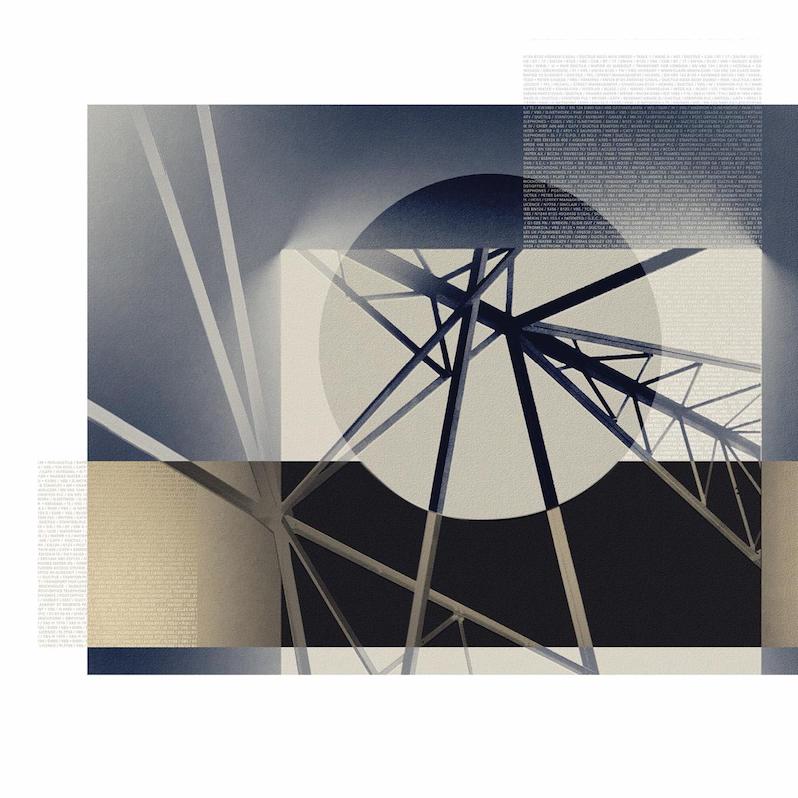Brian Eno : FOREVERANDEVERNOMORE

The title isn’t melodrama. This record, like so many that now clog online catalogs and web listings of new physical releases, is a record attempting to grappling with the soul-rattling paranoia of global warming, a different kind of heat death, and the dawning realization that we’re not going to fucking stop it. I don’t say this to disparage this record; it, like many of its peers, knows it is not even a drop in the bucket but more like tears in a callous and apathetic wind. These pieces do not rage, nor should they in a certain sense. You can read the climate reports just like I can. It’s hard not to sense the stench of death. Who do you think the southern border wall is for if not climate refugees in coming years? There’s a sickness that stains you after a while. You remainder all hope to some other, bleaker place, a silent box, a dark closet. Things really are this bad. There really is this little chance.
Which makes the decision for Brian Eno‘s FOREVERANDEVERNOMORE to linger in ambient pop realms make substantial sense. These pieces are not utterly devoid of anger within moments; “Garden of Stars” for instance flickers like a dying fire, something from a Godflesh record, the funeral dirge of the planet rendered in muezzin calls, or the album opener “Who Gives A Thought” which glowers in stormy darkness. But these moments largely come toward the front of the record, cut up with brightness, effulgence, a joy that seems to most keenly map to trying your damnedest to witness that which still lives especially in the knowledge that it might not ever live again, on its own or in replication. The brightness of “We Let It In” may at first be jarring, given the conceptual thrust of the record and the surrounding material, but it’s a sweetness that cuts deeper over repeated listens, like the final hopeful thing. Pieces like “There Were Bells” show that even someone as esteemed as Eno listens to others, feeling at once like an ambient reconfiguration of the Belew years of King Crimson with DNA from recent solo output by Toby Driver, whose “Anamnesis Park” feels like a haunting ghost. This, too, makes sense; Eno’s body of collaborations and production work over generations have shown a keen futurity in his mind, and that he would interpolate the evolutions on his ideas iterated on by others tracks with everything we know about him.
But then the most curious thing happens. The album’s emotional contour begins to flatline, carving away the supple slopes of melancholy and luxuriant doom, leaving not even a lingering trace of anger or joy or hate or malice. By the album closer “Making Gardens Out Of Silence,” a name which evokes death and life, the green of vegetation and the kaleidoscopic colors of the garden with the black of nothingness, we are left drifting in space, suspended beyond a sunbeam. This album is Kid A from the end of the world, no longer witnessing an existential threat but dying inside of it. There are no solutions here, nor in certain sense should there be. We can have discussions about whether it is a particular bourgeois and anti-Marxist response to the threat of climate death to attempt to seek peace with it, given that it will touch people in the first world (especially people like Eno) last among all. These are ultimately fruitful discussions, ones which remind us where and how we currently center the world and more liberatory ways we might adjust that lens. Giving up this fight means surrendering to the tides of death people other than us. But ultimately, those are political discussions, ones that surround but do not necessarily exist within this as a work of art. Eno’s effort here is one closer to Buddhism. Not delighting in death, in that perpetual silence, but in accepting it. Coming to terms with the end without flinching. It just hurts is all.
Label: UMC/Verve
Year: 2022
Similar Albums:
Langdon Hickman is listening to progressive rock and death metal. He currently resides in Virginia with his partner and their two pets.




